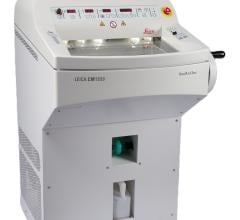
December 12, 2022 — ScreenPoint Medical showcased Transpara, the world's leading artificial intelligence (AI) breast care software, here at the 108th Annual Radiological Society of North America (RSNA) meeting, November 27-December 1, 2022 (South Hall #4141). The performance of Transpara is the subject of research being presented this week at RSNA, with two studies demonstrating the potential for Transpara to safely reduce workload in the clinical workflow of a double-reading breast cancer screening program.
Designed to work concurrently with radiologists, research shows that up to 45% of interval cancers can be found earlier using Transpara, while helping to reduce workload and optimize workflow. Transpara assists radiologists with the reading of 2D and 3D mammography exams by providing a 'second pair' of eyes helping detect cancers earlier and reduce recall rates. The company will showcase the latest version of the software and other capabilities under development.
In the study, "A prospective study of breast cancer screening with AI as first reader for likely normal mammographies," (M3-SSBR03-6, Monday, November 28, 9:30-10:30 AM), researchers evaluated the impact of screening with Transpara as first reader, in cases of likely normal FFDMs, on workload reduction and recall rate. Transpara was integrated into use in the screening program in the Capital Region of Denmark in November 2021. The baseline screening sample consisted of 59,325 women. More than half (58%, 11,205 women) of FFDMs that were likely normal were screened by Transpara, corresponding to a 29% workload reduction. The results also showed a lower recall rate, however not significantly so. An ongoing study for future publication is currently monitoring rate of consensus conferences, level of reader agreement, interval cancer rate, and cancer detection rate.
In the study, "Artificial intelligence (AI) allows safe workload reduction in breast cancer screening: A retrospective study," (M3-SSBR03-3, Monday, November 28, 9:30-10:30 AM), researchers evaluated the potential of an AI based decision support to safely reduce workload in the clinical workflow of a double-reading breast cancer screening program. Researchers performed a retrospective simulation, using Transpara as a triaging tool; exams with a low risk (score < 7) were selected for single reading, while exams with an elevated risk (score ≥ 7) were selected for double-reading according to the standard clinical protocol. Results demonstrated that replacing one reader in a breast cancer screening workflow with Transpara for the low-risk cases could safely reduce the workload by 33.8% with no cancers being missed.
Transpara is FDA cleared and has European regulatory approval (CE Mark) for use with 2D mammography and digital breast tomosynthesis (DBT) images from multiple digital mammography and tomosynthesis manufacturers and is used by leading centers throughout Europe and the United States. More than 3 million women's 2D and 3D mammograms in more than 30 countries have been read with the help of Transpara.
"Transpara is breast AI like no other. Clinically proven to improve cancer detection with more than 15 internationally recognized peer reviewed publications, Transpara also provides significant workload and performance improvements," said Mark Koeniguer, CEO, ScreenPoint Medical. "Ultimately, breast AI is more than simply a robust algorithm, it is all about the experience – the user experience to deliver the best breast care available."
For more information: www.screenpoint-medical.com


 February 11, 2026
February 11, 2026 









